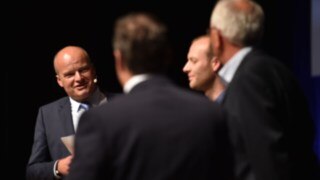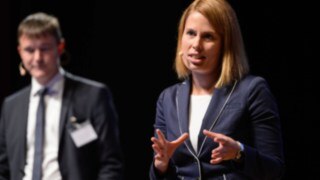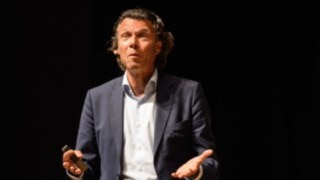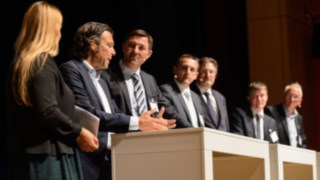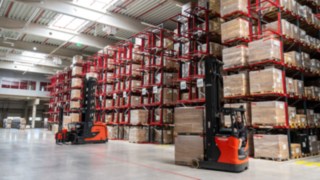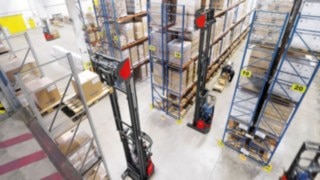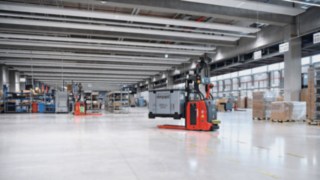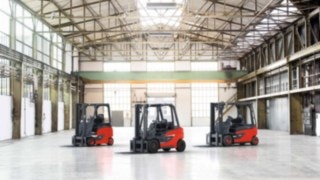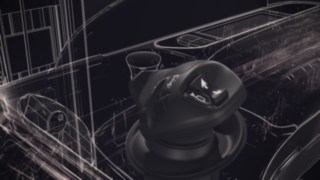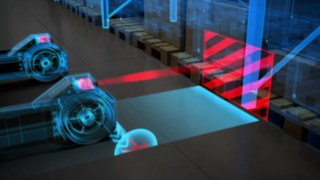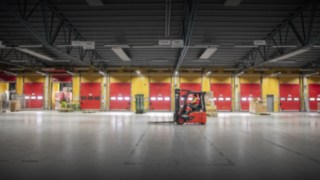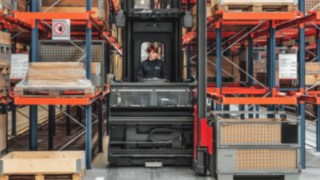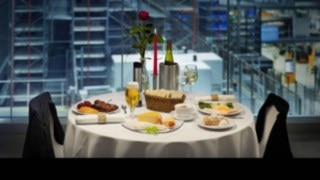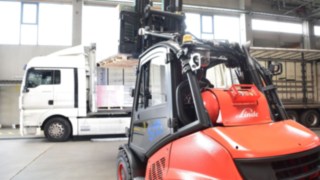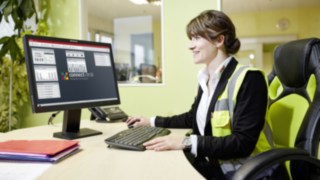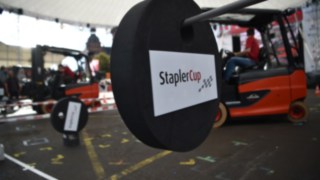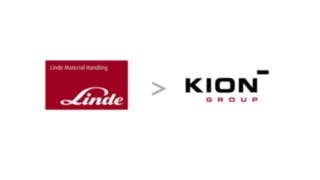6th Material Handling Symposium
Optimizing the entire process chain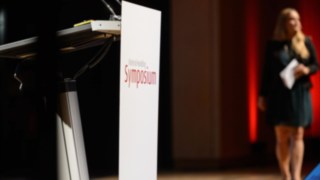
Under the motto "Leading logistics - today's innovative solutions for tomorrow's logistics", the Material Handling Symposium took place in Aschaffenburg on September 14, 2017. The focus was on questions concerning the future viability of logistics: What are practical solutions for digitization and automation? What does this mean for the optimization of the material flow chain? How can safety be guaranteed? Representatives of Linde and external speakers were able to answer these and other questions to around 200 participants.
The symposium was opened by Andreas Krinninger, Chairman of the Executive Board and CFO of Linde Material Handling, with the question of how more efficient goods handling can become a competitive advantage - even if, for example, individualised products will continue to challenge logistics in the future. He predicted that speed, economy, safety and reliability will become more and more relevant as specific requirements for the handling of goods.
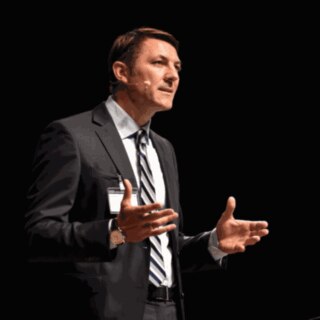
Despite the high level of complexity, the customer does not want to wait long for his product, so the goods turnover has to be dynamic - and the entire process chain has to be optimized.
Andreas Krinninger, Chairman of the Management Board & CFO, Linde Material Handling
Markus Schmermund, Vice President Intralogistic Solutions, also centered on the future of intralogistics. His focus was on three megatrends - digitization, autonomous driving, robotics - and the resulting consequences for the changing supply chain:
The demands placed on intralogistics solutions today are manifold. But in order to be attractively priced, you have to think modularly. It is not possible to develop every project from scratch
The presentation on lithium-ion technology by Frank Bergmann, product manager for counterbalanced trucks at Linde, was very practice oriented.
The numerous, above all economic advantages of these new energy storage systems compared to lead-acid batteries also convinced the companies Reinert, Feintool and Nora. Representatives of these companies then shared their experiences with the new battery technology from practice.
How secure logistics can be in the future was of particular interest to many visitors. Together with Dr. -Ing. Andreas Lewandowski, Managing Director of the start-up company Comnovo, Alexandra Mertel, Process Manager Linde robotics & Load Train Solutions at Linde, presented new safety systems. The special thing about this is the holistic approach to preventing accidents at work in intralogistics. In combination, technologies such as access control on the vehicle, collision warning between forklifts and people, the automated control of systems such as rolling gates and automatic speed reduction, for example when entering halls, increase operational safety.
What I am excited about is the modularity of the product platform. This enables us to develop safety solutions individually tailored to the requirements of our customers.
Comnovo has been a subsidiary of Linde Material Handling since mid-2017. The start-up is a spin-off of the TU Dortmund and offers numerous safety assistance systems for industrial vehicles.
Prof. Dr. Christian Kille from the Würzburg-Schweinfurt University of Applied Sciences then spoke about how the future of logistics is measured.
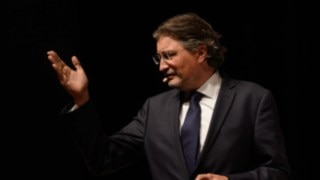
Prof. Dr. Christian Kille on the development of the logistics industry

Prof. Dr. Christian Kille on the development of the logistics industry
The particular challenge when looking to the future is how logistics can be defined as an independent economic sector. As part of the initiative to evaluate the development of logistics in Germany, he predicts a growth rate of 1.9 percent for the logistics industry in Germany.
However, if logistics become more dynamic - and at the same time are to remain secure and reliable - the pressure on decision-makers with regard to the profitability of their companies increases.
Urs Meier, former FIFA referee and ZDF commentator, addressed this pressure in his keynote speech. For 30 minutes, the "second best referee in the world" explained which roles emotion, reason and experience play in decision-making and how to learn to overcome the fear of difficult decisions.
A panel discussion at the end brought all the speakers together in the afternoon. Here, the participants discussed digitization once again. For Linde, this is a great opportunity to create added value, both for customers and for the company itself. In comparison, digitization has had a very disruptive effect in the printing industry, for example, explained Andreas Krinninger. However, in order to exploit the potential of new technologies - including in automation - companies would have to enter into stronger partnerships and be more willing to take risks.
However, it is always important to have a comprehensive view of the customer's requirements, added intralogistics expert Markus Schmermund. This is the only way to provide holistic solutions that are well integrated with other business processes in the company. Professor Kille, on the other hand, warned against overestimating the capabilities of current digital systems. The potential is great, but the challenge is to recognise the actual possibilities and to make them useable.
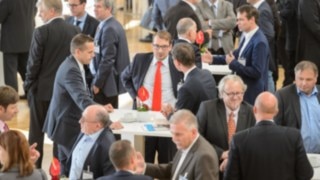
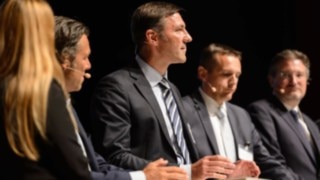
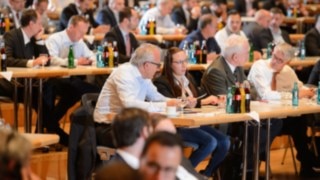
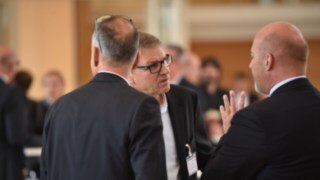
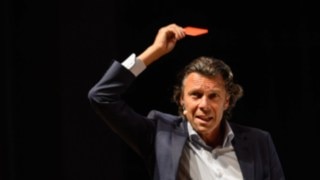
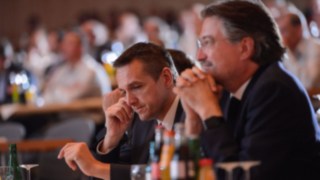
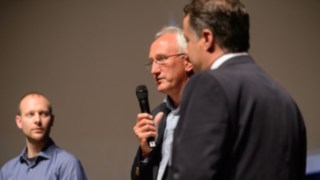
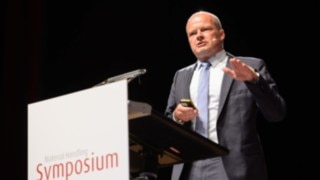
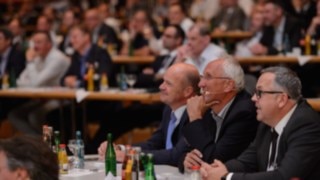
As a specialist forum, Linde has been offering the Material Handling Symposium for managing directors and logistics managers for interchange and networking since 2011. Participants from all sectors of industry are present, from small and medium-sized businesses as well as from large companies.
